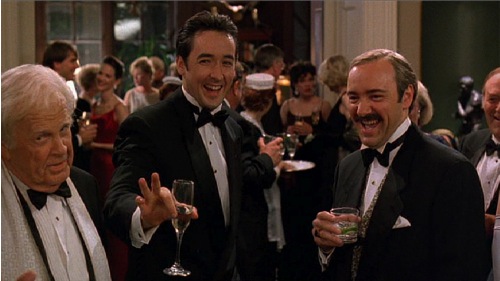The NRA's argument is that that arming more citizens enables preventative-discharge (if only the school teachers were packing, they could have dropped the gunman... etc.). The assumption is that this would be legal, since it's self-defense (though, as an aside, there should rightfully be a different phrase for stopping _mass_ shootings... group-defense, single-agent mass-defense, etc.).
But that line of reasoning needs to be unpacked a bit before it can be codified (or at least, justified). I don't know the answer right now. This is me, thinking aloud (a-wrote?).
A gun is just a tool, sure. But one with a pretty niche utility (unless you're prone to busting padlocks with a shot-gun). You can own a gun, but you can't use it to kill or harm people all willy-nilly. Application of guns against other humans is, then, a highly regulated space (law enforcement and military are sanctioned practitioners).
So what other tools are freely available, but whose specific applications are highly regulated? A scalpel, which doctors can legitimately use for cutting into people. Radio transmitters, to some extent (since unlawful broadcasts interfere with first responders). Speech: 'Fire' in a crowded theatre.
Some things can be home-brewed (enough combustibles to break a damn, say). Speech is arguably of a different class, since it's an in-built tool. So then, more precisely, something which can be obtained, probably purchased, pre-built and off-the-shelf, but whose use is not unfettered (fettered?).
Ok, a scalpel. I can go out and purchase one of those somewhere. I could even collect them, and spend hours telling visitors to my house about the nuanced differences between the stainless-steel scalpel in current use and the heavier, curved-bladed scalpels used during the civil war by field medics.... whatever.
But if a scalpel-owner shows up some day and starts slashing achilles tendons en-masse at a shopping mall.... And I, being a licensed concealed-scalpel owner, am able to stop this person, by response in-kind.... Does this then prove, on the one hand, that we need more scalpel-regulation or, on the other hand, less regulation and easier access to scalpels?
Possibly notable that enabling access has been shown to successfully lower incidence of HIV infection due to re-use of needles. But that is an asymmetric effect (more needles didn't lower the use of needles, it lowered correlated side effects: disease spread).
So, there again, is a detail that the analogy (a model) needs to preserve: symmetric-effect. If item A is more prevalent, item A will be used less. And in absolute terms: lowering per-item utilization is not relevant, but the overall use of the whole class of A-items goes down.
I think that is to say, the median goes down, not the mean. But that's the rub, really. The original NRA argument smacks of an appeal to emotion, or beliefs ('my cold, dead fingers' reasoning), rather than evidence-based policy (what needle exchanges are, in fact). As catchy as 'don't take my guns' is, I don't immediately see how that equates to 'less mass shootings' (whereas 'raise mental health awareness' or 'proliferation of counseling services' at least hints at a logical and effectual decrease in mass-shootings).
We're not an Anarchist republic. I can't spark up a doobie just whenever, no matter how much that impinges on my inalienable rights. You can't smoke a cigarette on a commercial flight, period. So the unencumbered call for 'less regulation' just doesn't fly.
If the motivation is truly 'freedom' (ole cold-dead-fingers again), then drop the 'save innocent babies' line. That reasoning doesn't follow and it isn't evidence-based (though I'll eat my pixels if someone can produce such a controlled study). If the motivation is 'prevent shootings', then drop the 'my gun collection' line, cause that's only one possible fix for a fairly systemic set of symptoms. In the latter case, there is a fair amount of prior effort on what works.
If intervention is the goal, firing back in a crowded public space would be, I don't know, the absolute worst and last chance you had in a process that surely started months or years, earlier. But heck, I haven't thought of the proper tool analogy yet, so I'll just keep digging.
